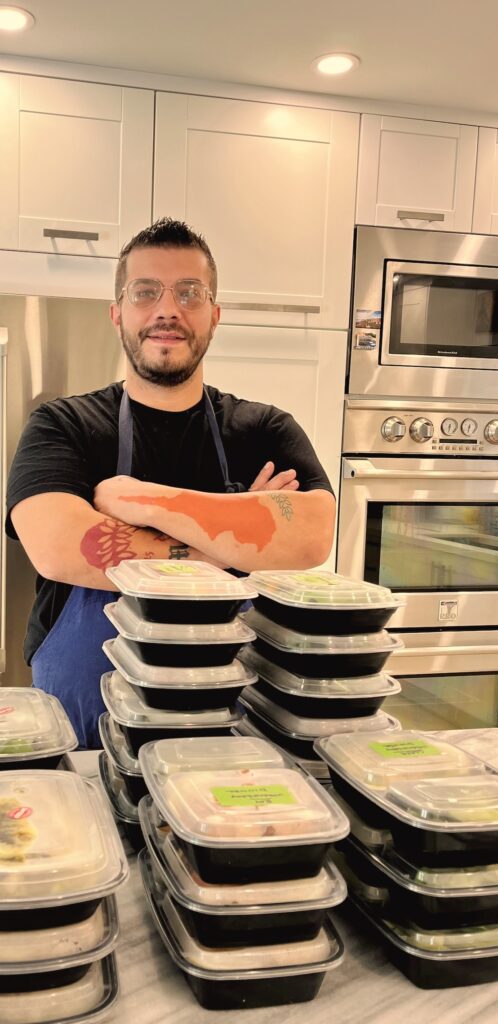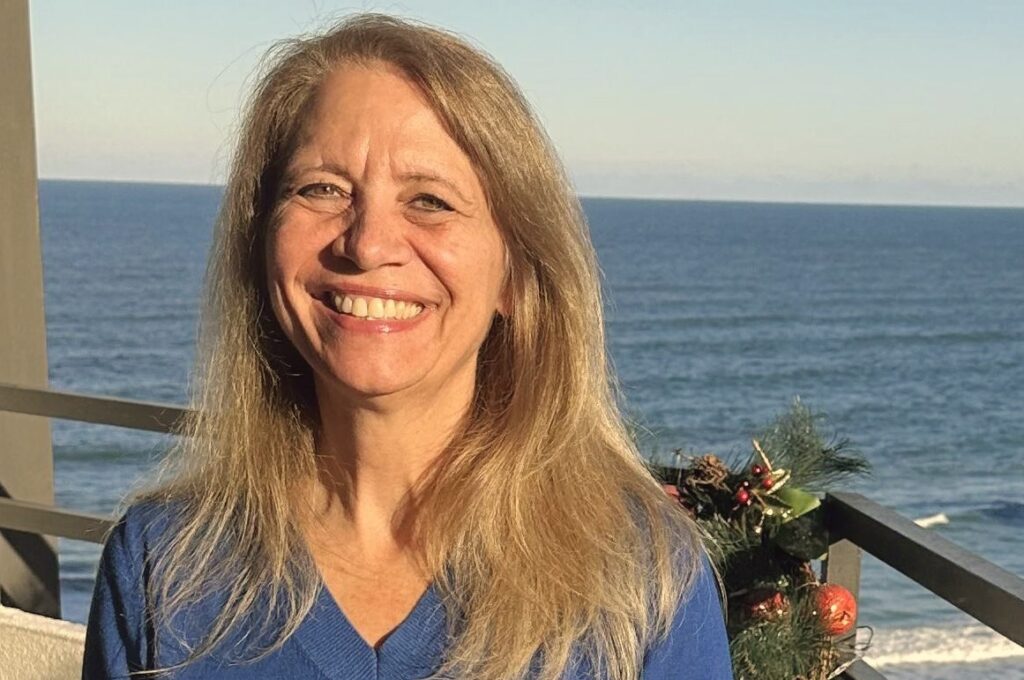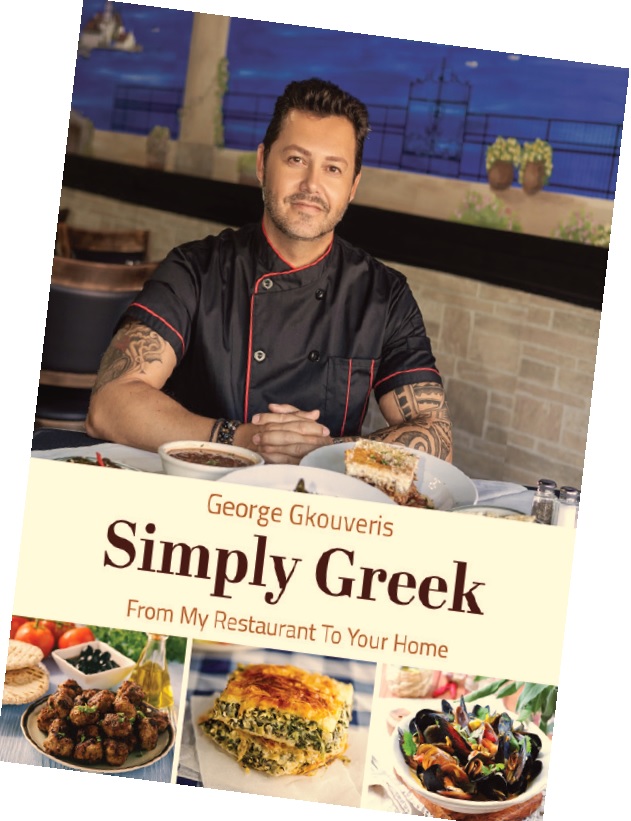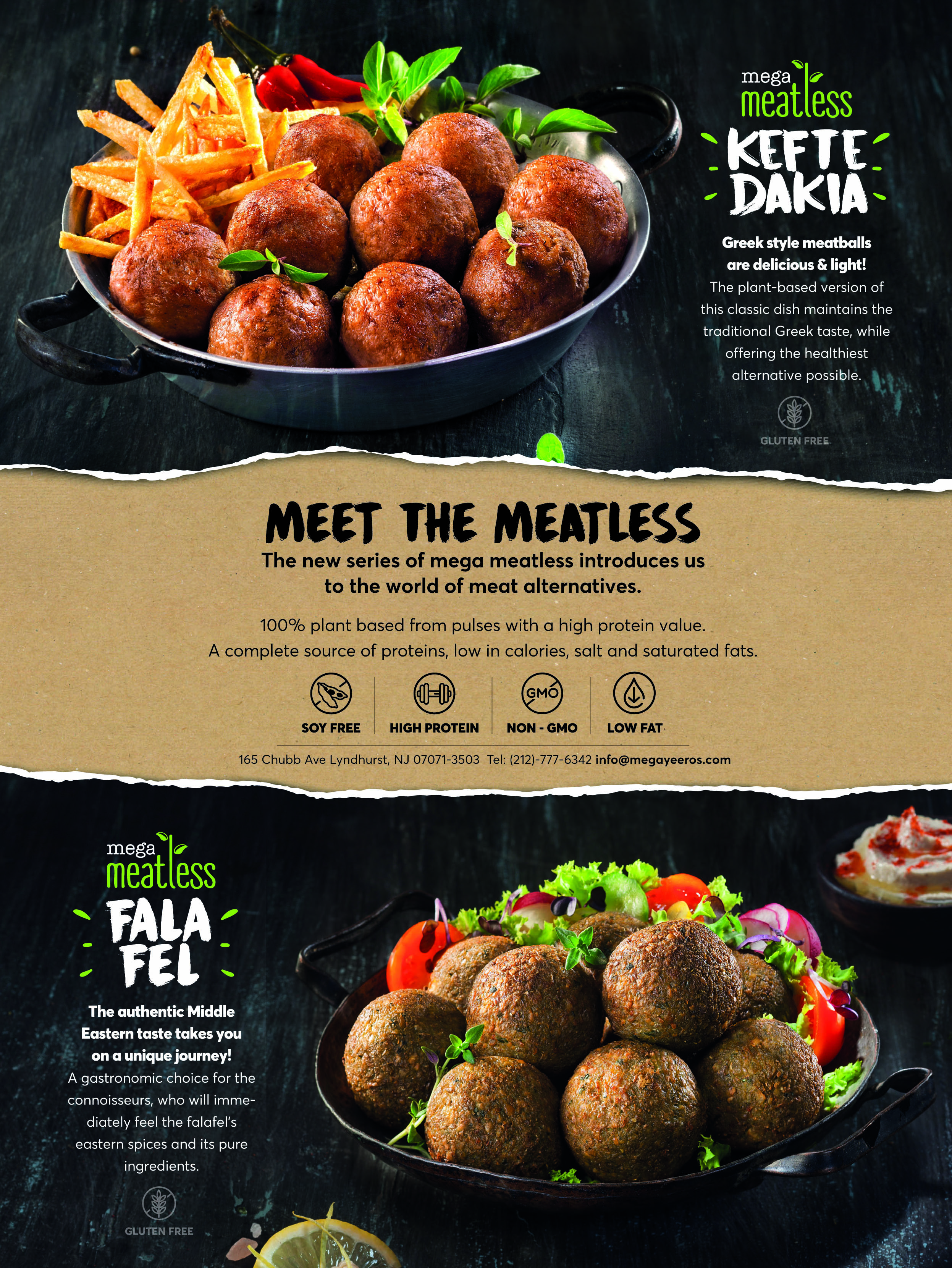Concepts, Classes, and Cookbooks
Posted by estiator at 11 February, at 06 : 12 AM Print
COVER STORY
To promote Greek food, three food professionals take their own paths.
By Michael Kaminer
What does it mean to be an estiator in 2023? Does the path forward for our industry, promoting the benefits and joy of Greek food, always begin and end at a restaurant? With that question in mind, Estiator talked to three people charting their own way forward with Greek cuisine. One is building his personal brand after years of high-profile, high-pressure restaurant roles. One is a former scientist whose Greek cooking classes are spreading the cuisine to a whole different audience. And one is a chef who just released his first cookbook.
In their own ways, all three may inspire the next great chefs.
CHRISTOS BISIOTIS

The CB Concepts
Coral Gables, FL
christosbisiotis.com
ESTIATOR READERS may recall Christos Bisiotis from a 2020 Chef Profile, written as he prepared to open a Greek eatery called Egeo.
The restaurant never happened, Bisiotis told Estiator from Coral Gables, where he now runs The CB Concepts, an in-demand provider of catering, weekly meal service, personal chef services, and product development. The CB Concepts-branded products, including fresh pastas, will soon be sold in markets and at retail, Bisiotis tells us.
“I love to cook, period. Whatever I try to do, I try to do from bottom of my heart,” Bisiotis says. “When it comes to cuisines, I don’t have favorites. But what relaxes me in the kitchen is fresh pasta.”
The CB Concepts encompasses three divisions that specialize in Greek, Italian, and Israeli foods, respectively. Térpsi by Christos Bisiotis is named for his grandmother, Terpsichore, who taught Bisiotis to “cook from the heart and give smell to memories,” he has said.
Lora, the Italian concept, is named for “the love of my life”—his wife, publicist Laura Neroulias Bisiotis. Rustic cooking is the focus. And Lox ‘n’ Love is Bisiotis’s “ode to Israeli cuisine and its beautiful combination of spices, ingredients, and flavors,” drawing in part on his 2017 stint as consulting chef to El Al Airlines.
Bisiotis has one of the most diverse and accomplished résumés in the business. An alumnus of OTEK, the Greek government’s highly regarded hospitality school, Bisiotis arrived in New York in 2007. Without many friends or connections to smooth the way, he quickly landed a job at Christos, an Astoria steak house.
His star ascended from there. Bisiotis became chef de cuisine at Eataly NYC Flatiron, where he leaned “the art and love of Italian cooking and food hall operations.” During his time there, he also worked on opening Eataly Chicago and international locations. Subsequent gigs included leadership roles at Michael Mina’s high-end MINA Group, New York’s Avra Madison, and—in 2019— the glossy Milos at Hudson Yards, where he managed a 120-person brigade for the 230-seat dining destination.
In 2021, Bisiotis represented Greece, unofficially, on Good Morning America. As part of a summer-long culinary trip around the world, the program tapped Bisiotis as its expert chef for Greek cooking. “I’m totally against modern cooking because I think you’re moving way too fast and you forget to practice your roots,” he told GMA at the time. “People get going into the techniques without getting into the roots and the original flavors—all because they want to impress or get a perfect picture on Insta- gram. I want people to like my food, not my pictures.”
Bisiotis’s food, and his approach, fueled his fast rise. “I just had to keep jumping into deep water pretty fast and learn how to swim,” he says. “It’s not about networking.
I’m not good at it. It’s not my thing. I like relationships to happen naturally. It wasn’t connections but my ability and skills that led me to get good positions in my professional career.”
Egeo was set to happen next, fulfilling Bisiotis’s dream of running his own restaurant. The pandemic stopped it from happening—along with “a bad partnership,” Bisiotis says. “These were people who had never been in the industry. Another person was coming from a family diner in New Jersey. Having partners who can’t see alternate routes to profit makes the work twice as hard. They pulled the trigger, and I left. They lasted for eight days. But I’m still going.”
Bisiotis moved to Miami to work on two more high-pro- file openings, MILĀ Miami and Carbone Miami. He launched The CB Concepts in 2022.
While Bisiotis is out of the restaurant business for now, he has become a passionate advocate for what he calls a better way of doing business—and a stronger commitment to quality across the board.
“We were hoping that after Covid, everything would go back to normal, but instead the greedy became greedier,” he says. “The cost of everything is going up, but salaries are staying the same, which means restaurateurs are losing talented people from kitchens. You’ll find extremely amateurish people now, and food is not where it has to be. You can’t pay a line cook in New York City $16 an hour when a pack of cigs costs $15.50. How will this person raise a family and feed their kids?”
Bisiotis thinks a retrenchment in the industry is not only inevitable but welcome. “Those who were never into the business—maybe they made money in construction and opened a restaurant—I hope they close tomorrow,” he says. “The ones that are left can push back and give a new birth to something good. We need an industry committee of well-known chefs who have some authority and structure. We need to keep pushing forward for food and service. The bottom line is that I want the industry to get better.”

ELAINE PITENIS
My Big, Fat, Greek Cooking Class!
Ormond Beach, FL
mybigfatgreekcookingclass.com
IT’S NOT A STRETCH to say Elaine Pitenis takes a scientific approach to cooking. Before she launched My Big Fat, Greek Cooking Class! (mybigfatgreekcookingclass.com) in Ormond Beach, Florida, Pitenis worked in microbiology and cancer research at Children’s Hospital Medical Center in Boston.
“I loved what I did in Boston, but it was all life and death, and very stressful,” the Harvard alumna tells Estiator. “Working with sick patients every day was never fun. I would cry coming home from work. Once I had my four kids, I pretty much retired from science.”
Pitenis, her husband, and their four children moved to Athens for a short time before settling in Ormond Beach, near Daytona Beach, in 1999. While in Greece, Pitenis started exploring traditional cooking techniques from chefs who hailed from Corinth, Kastoria, and the islands of Samos and Salamina.
Cooking became Pitenis’s avocation; her love of Greek food, and a mission to share the benefits of a Mediterranean diet, inspired her to launch cooking classes in 2004. Her first venue was The Casements, the cavernous former winter home of John D. Rockefeller. The courses became an instant hit.
“I like to show how easy it is to make this food,” she says. “I teach one or two classes a month, so I’m not overburdened. The classes sell out months in advance.” Heart-healthy versions of traditional foods are a specialty, and Pitenis credits her mother—and yiayias—for forging her path.
“My mother’s style of cooking was a combination of traditional and a little avant-garde,” Pitenis says. “My grandmothers were great home cooks. Often- times I would visit with my Yiayia Eleni and she would show me how to make dolmades or koulourakia while telling me the story of her childhood. She was teaching me the Greek language at the same time, so I became fluent in Greek while learning to cook.”
As Pitenis recalls, “she never used measuring cups—only her old-lady teacups when measuring flour. Once I asked her how much flour she added to the bowl, and she responded, ‘Ένα φλιτζάνι,’’ which means ‘One cup.’ Then I asked her how much volume is in that teacup, and she looked at me as if I had six heads! Without measuring cups and fancy cooking gadgets, her Greek foods came out perfect every time,” Pitenis says.
Yiayia Eleni is featured on page 58 of Pitenis’s 2020 cookbook, My Big, Fat, Greek Cookbook, which compiles recipes from her classes. “It took me 11 years to complete, after 10 years of procrastination,” Pitenis says. “The food photography was the obstacle, but once I found Niki Ross, a photo- journalist from the Daytona Beach News-Journal, she helped design and photo- graph all 88 plated foods.”
Pitenis’s family history informed much of the book, too. “My grandparents were from Piraeus and the island of Samos, before they moved to the Boston area in the 1920s. My dad, Jimmy Spinos, worked for the Harvard Square Post Office for 34 years, and my mom, Connie Spinos, was a home economics teacher for Cambridge schools. She’s now nearly 98 years old and living nearby at an assisted living facility.”
Pitenis’s science back- ground influences her cooking as well—sometimes subconsciously. “I have a table set up to teach, with a paper towel about four feet long where I keep all my utensils,” she says. “I once worked in an operating room. That’s exactly how I kept my sterile surgical tools.”
Her recipes, however, come from the heart. “Right now, I am researching some new and wonderful recipes that are heart-healthy, by taking traditional Greek recipes and modifying them to be less caloric, less fat, but just as delicious. I was inspired by the Blue Zone philosophy to help society live to be over 100 years old,” she says. “I had two wonderful grand- mothers who cooked terrifically, but with, like, 10 eggs and five sticks of butter. You can make the same delicious food, just more healthful.”
A class built around cooking leg of lamb has been popular, Pitenis says; so are her phyllo classes. “People are phyllo-phobic—they’re afraid of it,” she says. “But we make everything with phyllo, including a Greek salad and a Beef Wellington.”
Has Pitenis considered a cooking show? “I had approached a local affiliate with the idea, but I had to provide my own four sponsors for a half-hour program, so I gave up on it,” she says. “But I’d love to pitch the idea of a cooking-class show to the Cooking Channel. Every class is like a dinner party for people I haven’t met yet.”
For now, her classes continue attracting the Greek-curious from Daytona, across Florida, and even across the U.S. “I serve a lot of wine in my three-and-a-half-hour classes,” Pitenis says. “We toast to each other’s good health; my apron says ‘Yassou.’ Once they start drinking, they become more gregarious. I don’t do all the talking. They talk. That’s what’s helped the classes become so successful.”
GEORGE GKOUVERIS
Sparta Taverna
Ridgefield Park, NJ
spartataverna.com

SPARTA-BORN CHEF George Gkouveris opened his beloved New Jersey restaurant, Sparta Taverna, in 2004. But after nearly two decades, he continues reinventing himself; Gkouveris published his first cookbook, Simply Greek: From My Restaurant To Your Home, in September 2022.
The book promises “traditional and modern recipes that thousands of people enjoyed over the years and still do to this day at Sparta Taverna restaurants since 2004,” according to an online blurb. It also offers “quotes about food, coffee, and the love of cooking. Benefits from the Mediterranean Greek diet, the healthy way of Greek life and tips to improve an overall healthy lifestyle.” In fact, as the book’s prologue reveals, most of the recipes were inspired by the cooking of Gkouveris’s mother and sister. “The most important ingredient in a recipe is love,” he writes.
“The pandemic was incredibly challenging, but it allowed me to take a break and work on a cookbook, which was always a dream of mine,” Gkouveris tells Estiator. “I dedicated more than eight months to it. I wanted to represent Greek cuisine and all its benefits. The right food can be medicine for the body and soul. Pregnant women used to come in for our chicken avgolemono five days a week!”
Sparta Taverna’s food has earned it a loyal local following, Gkouveris says. “Other places have views or scenes. Here, people come for the food. Customers come here four, five times a week. They love our food.”
The pandemic, of course, threw a wrench into Sparta Taverna’s operations—but less than some other restaurants, Gkouveris says. “Delivery and pickup, thank God, made up the bulk of my business before the pandemic, and that got busier,” he says. But with Sparta Taverna’s dining room closed for more than a year, “we lost the 30 percent to 35 percent of our overall business that dine-in represented.”
In the coming year, the busy Gkouveris is planning to produce a series of how-to videos based on recipes in Simply Greek. “People have been asking for me to show them how to make what’s in the book,” he says.
Gkouveris, who at one point operated three Sparta Tavernas in New Jersey, plans to open a new location this year. “After the pandemic, I had to focus on my restaurant. Now I can plan,” he says. His eyes are on the region of New Jersey where he lives, the Edgewater/Weehawken corridor along the Hudson River.















